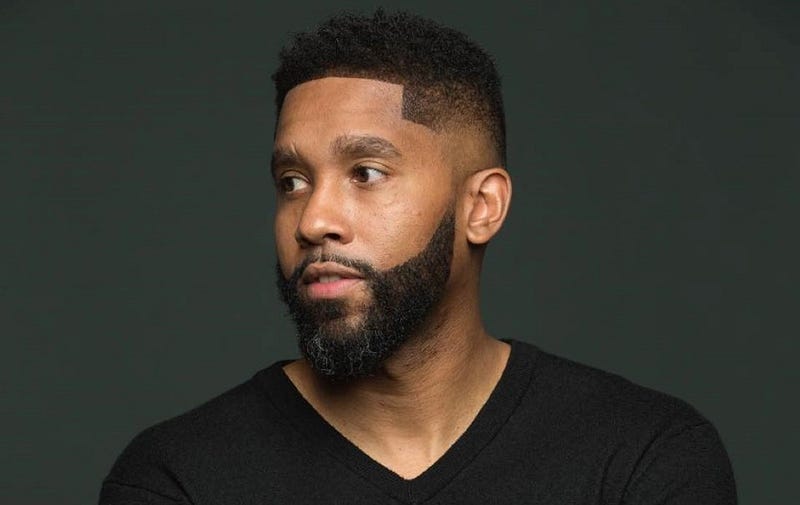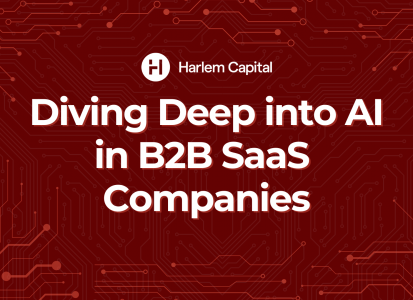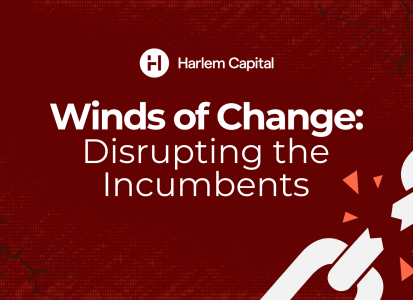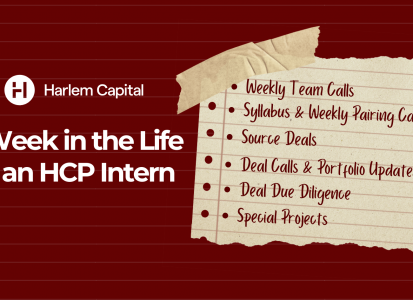Harlem Capital Interviews Craig J.Lewis — CEO & Founder of Gig Wage
by Harlem Capital

This interview is part of Harlem Capital’s current series showcasing key lessons from the founder’s journey to build, grow, and fund their business. This interview is with Craig J. Lewis, founder and CEO of Gig Wage. Since its founding in 2014, Gig Wage has supported thousands of gig workers and continues to power the future of work for this generation.
This interview has been edited and condensed
On Starting Gig Wage
Harlem Capital (“HC”): How did you make your way to starting Gig Wage?
Craig J. Lewis: I played Division 1 basketball in college and then played professional basketball in Europe. When I finished playing I got married, started a company that failed, and then said ‘hey, I’m gonna get a job.’ So actually, I got introduced to the payments and HR space through a sales position at a company called ADP (Automatic Data Processing). While I was there, we went from a service company to a software and technology company and I was on one of the early teams selling ADP’s small business technology payroll offering. I knew at that point in time that I wanted to be in the business of paying people and managing workforces, because I just thought it was a good space to build a career in. So fast forward a number of years, through various roles and experiences, I became the HR payroll guy, trying to bring a little bit of cool to payroll.
HC: What happened next?
Craig J. Lewis: From there I met Angela Benton, who was the founder of the NewMe Accelerator at the time. She introduced me to Brian Brackeen who was the founder and CEO of Kairos. At the time he was doing time-keeping and he was selling it into VPs of Payroll at major enterprises. All of those people were part of my network.
I saw an opportunity to join and learn the Silicon Valley way of raising money, building product, building a startup and team, then take that experience and bring it to the payroll industry specifically. So I joined Kairos as the Chief Strategy officer. Then in 2015, I launched this company using all my experiences in payments, software, technology, startups, and VC.
On Fundraising
HC: You’ve had an incredible range of experiences that led you to starting Gig Wage, including working at a VC backed company. Given that lens, at what point did you start thinking about raising capital for Gig Wage?
Craig J. Lewis: So I knew I was going to raise money out of the gate — that was part of the model. I wanted to build a venture styled business, one built around a great product, innovation, and growth. Even knowing that, I self-funded the company for about 9 months post-Kairos and focused on honing in and figure out what we were going to do. We knew we were going to be payroll payments, HR related. We knew we wanted to build the company in Dallas. So, just focused on finding the team. Then we raised a $600,000 angel round the summer of 2015 with individual investors from Dallas and Stage 1 Ventures out of Boston. So we took that money and set out on our journey.
HC: A lot of the challenges that diverse founders experience is reaching a network of investors. You were able to access a network of investors in Dallas. What did it take to build and craft the network for your early raises?
Craig J. Lewis: For me it was a combination of two things. One, I’m a sales and growth professional, so I’m built to build relationships and ask for money [laughs]. That’s what I’ve built my entire career on, so I did have that skill set. When I got to Dallas though, I had a skillset I could apply but I didn’t have the network at all. My approach was this: I knew what I was doing and I had experience in an industry that gave me instant credibility. I knew payroll, payments, timekeeping, HR, and the services around that from the macro to the micro better than anybody. So I took those skills and became like an evangelist for this Silicon Valley growth model, which was really interesting and appealing to the Dallas market. For all the oil & gas, real estate people, telecom people that are here, that story really resonated. But that doesn’t mean it didn’t come without challenges. We know the stats around under represented and underestimated groups as well. Being in Dallas, Texas, trust me, I’m the only one in the room a lot of the time. But, I take a no prisoners kind of attitude. I’ll sit in room with anybody.
I was bold enough and had the courage to go sit in the room with billionaires. I was looking for somebody to say yes.
HC: What advice do you have for other founders considering VC funding?
Craig J. Lewis: So after I raised that money, that first $600K we were pre-product and that comes with its challenges.
I always advise: do as much as you can, build as much as you can before you raise any money.
I wouldn’t do it my way again because, you don’t know where that product and that company is going to go. And people are going to be frustrated when it turns out differently than what you sold them.
Finding investors who understand where you’re coming from is thing ideal situation.
Investors who understand venture, entrepreneurship, being black, anything that resonates with you, I think that’s ultimately the goal. As many of those boxes that you can check are extremely valuable when evaluating investors because, especially for early stage investors, they will be in the foxhole with you. So you really want to be able to have open and honest conversation with someone that understands versus someone that doesn’t understand.
HC — In a Case Foundation article that you mentioned that, “you’ve seen similar companies to yours that have raised, three, five, or ten times what at a similar stage”. What do you see as that disparity, that difference in funding?
Craig J. Lewis — Well, lack of commonality. So, if I was an investor, I would be more likely to invest in someone that looks, feels, thinks, comes from someplace similar to myself. So I don’t have that commonality oftentimes with the people that write those size checks. Not that it’s necessarily the number one thing, but that is a thing.
But I think the bigger things is geography.
The ecosystem you’re in has to be built to write big early stage checks. If the money is in your ecosystem, you’re a lot more likely to do that at the early stages.
So if i’m in a larger funding market, the likelihood of raising larger rounds increases. Investors who do the seed round, know who will do the A. The Series A investor will know who will do the B, and so on. In Dallas that’s not necessarily the case. So it’s challenging when you’re building outside of some of those ecosystems. I think the geography of it and the infancy of some of the newer tech hubs is probably the biggest reason we’re slightly underfunded compared to some of our counterparts.
On Product, Pivots, and People
HC: What was your journey to product-market fit?
Craig J. Lewis: At the start we were building a small business payroll and HR application. We saw that a lot of the businesses that were signing up for our services were micro-small businesses that didn’t have any employees. Then in 2016 macro data started coming out about the gig economy. We noticed that it was very similar to what we were seeing internally. So we paused, since we were struggling on product-market fit, and said,
‘Hey, what are we uniquely qualified to do? How do we streamline what we’re doing? What if we just focused on one thing?’
And this one thing happened to be what we were seeing with our customers, which was supported by the macro level data about the rising gig-economy.
We didn’t find other products that were providing enough support to contract and gig workers. So, we made the decision to switch to focusing on this group and then a month later we launched a completely new product, had paying customers, and knew we were on to something. It’s just been this evolution of understanding and listening to our paying customers about what they want and what they need. So we went head first into Gig Wage. We rebranded the entire company, and just shifted our focus to help businesses with contractor compensation, compliance, and communication.
HC: How do you stay laser focused on product when the company is scaling or while you’re fundraising?
Craig J. Lewis: Well, I have a kick-ass product team. From my CTO to my VP of product, to my chief design officer, to our VP of innovation, everybody. My team knows, ‘Ok, Craig is going to spend the next 30 to 60 days hyper focused on fundraising.’ And I can trust that my team is going to execute, execute, execute, which is phenomenal. And we did this with the last raise. I’m fortunate enough to have a solid team. Everybody touches the product in some way, whether it’s from design to developing to architecture. And so, my team will hold the fort down, while I fundraise. But also, I think just as a founder and CEO, that’s part of it.
I need to be able to bounce in and bounce out to tell the stories of what we’re building and who we’re building it for in real time while fundraising.


